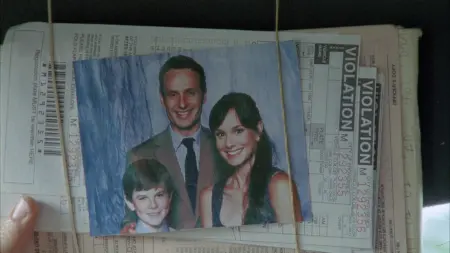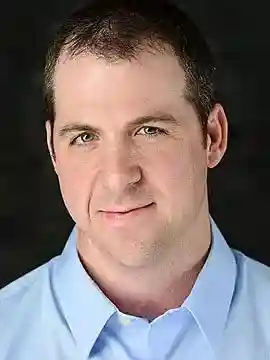The Walking Dead returns this Sunday, and what better way to prepare yourself for the wildly popular show's premiere than to take a deep dive into the pilot that started it all, "Days Gone Bye?"
The Sounds of Silence
If you're a fan of the show and you re-watch the pilot, the most striking element is the silence.
As the seasons have progressed, the cast has shifted, the herds of zombies have grown in size, and the horror of the show has been replaced with action.
That's what a popular show with an increased budget tends to get you, but the pilot is far more minimalist.
The shots are longer, with Rick meandering throughout a number of interesting settings—abandoned camps, his abandoned home, abandoned streets, abandoned cities.
The stretches of silence with minimal dialogue are like body shots, giving the viewer a sense of unease and tension, giving the larger set pieces of the show more punch.
The use of silence and the steady, patient hand of Frank Darabont (writer and director of the pilot) makes the first look at a herd of zombies in downtown Atlanta even more memorable and harrowing.
The Power of the Aftermath
One of the key questions the pilot asks is far different than your typical television fare. Instead of building up tension and curiosity based on WHAT WILL HAPPEN?, the WD pilot focuses primarily on WHAT HAS HAPPENED?
Darabont shows us the aftermath in multiple scenes, leveraging the power of a viewer's imagination.
When Rick encounters the ruins of a military camp, with a destroyed chopper, scorched asphalt, and vacated vehicles, we aren't fed the explosions and SFX to show us what happened. We effectively imagine it, not sure if we are correct, putting the horror of the zombie plague more in our minds and imaginations rather than the screen.
This is a primary tenant of effective horror, and the pilot is one of the few WD episodes that maximizes its impact.
Other uses of aftermath for powerful storytelling include the scene when Rick wakes up from his coma. He's got a beard, the clock's battery is dead. The flowers are dead. He's woken up to a dead world and doesn't even know it yet.
The titular image of the series—Rick riding a horse into a deserted Atlanta while cars are all stacked up on the way out of town—uses aftermath to hit you with maximal impact from just a single scene.
Thematic Resonance Through Gunfire
Perhaps the most signature sound of The Walking Dead is a single gunshot, usually applied with moral hesitation by one of the heroes, into the head of an enemy.
In many ways, the shift of morality and innocence is the transformation that has carried the cast through the series, Rick in particular. However clunky this execution was throughout the seven seasons, it's surprising to see how the pilot set up this thematic undercurrent early in the show.
The first abandoned camp that Rick explores is heavy on the loss of innocence motif. The ruins of the first camp are thick with signs of childhood. Dolls. Strollers. Children's clothes, dirty and bloody.
The first zombie we see is in fuzzy slippers. It's a little girl with blond hair, and Rick calls out to her, hoping to be a child's savior.
Instead, he's forced to play executioner and put a child-zombie out of commission. He's got the moral hesitancy, and later in the episode, he even verbalizes it during a mercy killing: "I'm sorry this happened to you."
This morality and hesitancy will erode as the series progresses. The world has rendered them useless for survival, but they are vital for humanity. The conflict is artfully set up right away, and the character of Morgan really drives the point home.
Morgan Steals the Show
It's rare that a secondary character becomes as beloved as Morgan is. His presence is felt throughout the series, forcing him into the regular cast years later—but by then, he's a very different character.
This is a stock character. A trope. It's the grieving father faced the with the horrific decision we see in so many zombie movies—someone has to deal with a loved one who has "turned" and must come to grips with the fact that she must be killed.
Here is where the space and breadth of television are allowed to shine. In a film, this scene must take place quickly, packed into a ninety-minute story. With the infinite space of a television series to use, the canvas is bigger, so Morgan is allowed to struggle with this decision in two different scenes—and still not pull the trigger.
This could have been a comical misstep with an actor who chews too much scenery, but Lennie James has the chops to pull it off. It's rare that I go over the top to acclaim an acting performance, but what James accomplishes here is first rate grief and suffering. Watch his scenes in this episode, and then listen to his voiceovers as Shaxx from the video game Destiny. There, I just made your day.

The Trap Metaphor
The episode ends with a fitting metaphor of the world as a whole—Rick, trapped in a small space, no way to escape the relentless hunger of the walking dead, relying on the humanity of a stranger for hope.
While this isn't a pure cliffhanger, a theme is emerging in the pilots I've looked at—they use some of their biggest curiosity-driving cliffhangers at the end of the pilot episodes. It's like a "get out of jail free" card, a break glass in case of emergency trope to try and capture as much of the casual audience as possible for the next episode.
With pilots, you have a lot of casual viewers kicking the tires, deciding if they want to buy. The cliffhanger at least gives the show a better chance to get them to take that second test drive, and "Days Gone Bye" is no different.
While maintaining the immediacy of that tension, a single scene with Rick's family puts a benchmark out there into the future--his best friend Shane is alive and having a relationship with his wife, who is also alive, along with Rick's son, Coral—I mean Carl.
Rick's family is all that matters, and he just needs to escape this impossible situation to continue his quest to find them. Tune in next week to see if he escapes!
Final Thoughts
The choice to bring in some heavy-hitting British actors as the leads in the pilot brings a gravitas you don't encounter too often in genre fare.
A steadiness and patience is present here, building tension and dread. The zombie scares are treated as events, and doled out for maximum effect. Some of the images are iconic and earned.
It's no surprise that this pilot is popular and well-received, so if you're crafting genre, you could do worse as an example of how to do it right.
I give it five out of five exploding zombie skulls.
Have you seen The Walking Dead's pilot? Are you excited for season eight? Sound off in the comments!

About the author
Fred Venturini grew up in Patoka, Illinois. His short fiction has been published in the Booked Anthology, Noir at the Bar 2, and Surreal South '13. In 2014, his story "Gasoline" is featured in Chuck Palahniuk's Burnt Tongues collection. The Heart Does Not Grow Back, published by Picador in 2014, is his first novel. He lives in Southern Illinois with his wife and daughter.








